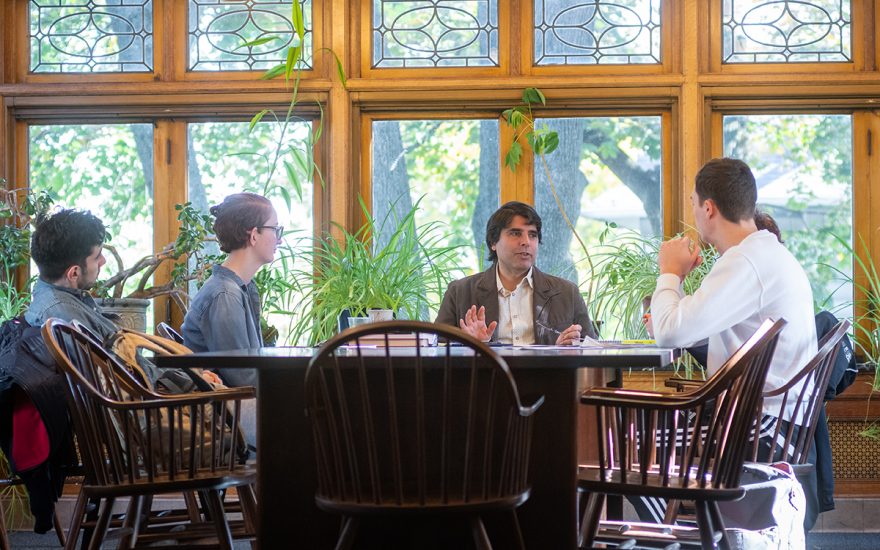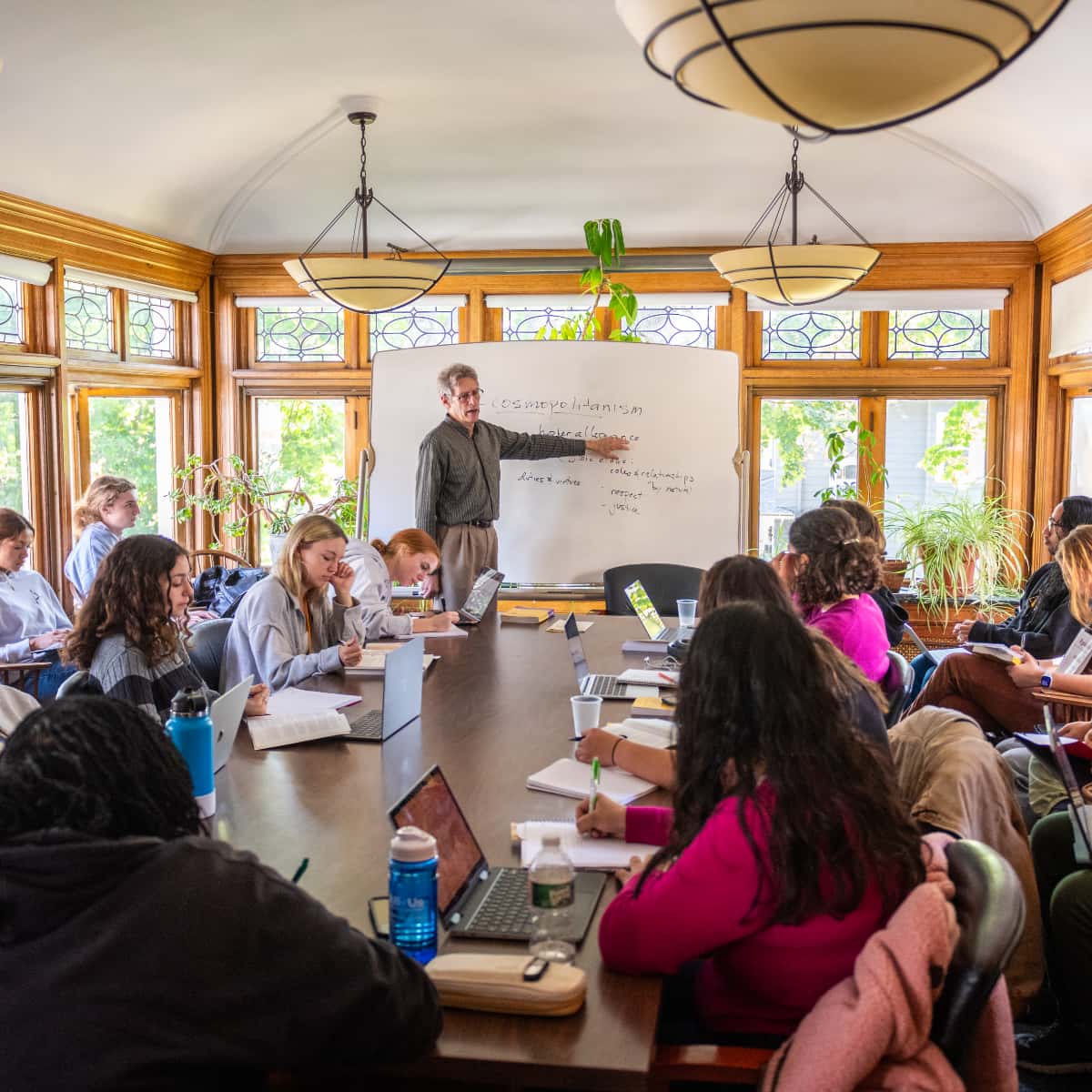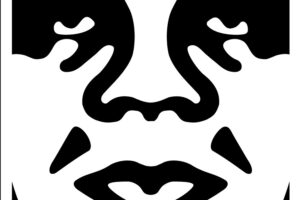Searching for truth behind the noise, the reality behind the fog? Then philosophy at Clark is right for you. The philosophy major at Clark explores the fundamental questions of life, knowledge, and right and wrong. Think beyond the easy assumptions and hidden biases. Reveal truth. Investigate and logically evaluate arguments, and understand the basis for morality.


Why study philosophy at Clark?
- At Clark, you’ll be taught, advised, and mentored by philosophers with international reputations in fields ranging from Ancient Greek philosophy to biomedical ethics.
- You’ll join a community of philosophy majors headed for careers in law, medicine, environmental policy, innovation, public health, finance, and research — many of whom are double-majoring in fields as diverse as physics, theatre arts, biology, psychology, mathematics, and political science.
- Share a dedicated intellectual home — Beck House — with fellow philosophy students and faculty members.
- Apply
- Request Info
Are you ready to take the first step?
Featured Courses

Art and Morality
Artistic expression has long been linked with controversy. In this course, you’ll draw on examples from the arts, the media, and the political realm to examine the role of morality in the creative process.

Reason and Political Disagreement
Can reason change someone’s mind in an emotionally charged political debate? Examine a real-world debate and engage with its participants and stakeholders to see if rational arguments can heal these divides.

Plato
Immerse yourself in the mind of one of the most brilliant philosophers of all time. Student of Socrates and teacher of Aristotle, Plato helped shape Athens’ Golden Age, and his works remain highly relevant today.
At Clark, your first course in philosophy is likely to be a First-Year Intensive (FYI) seminar or a course in ethics, such as Personal Values, Social and Political Ethics, or Environmental Ethics. Your last course will be a dedicated capstone seminar, reserved for graduating senior philosophy majors, devoted to collaborative, individual research projects around a central theme.
In between, you’ll take two courses in the history of philosophy, one in formal logic, one in epistemology, one in metaphysics, one in ethics and social philosophy, and advanced electives on single philosophers, movements, or topics. Few of your classes will have more than 24 students, and many will be limited to 12.
Career Communities are industry-focused groups designed to support your professional exploration and narrow down your career interests within specific fields. You’ll connect to opportunities, professionals, and information that will support your career development. The following communities may be of interest:
Non-Profit, Human Services, and Education
Qualified students can join the Clark chapter of Phi Sigma Tau, the national philosophy honor society.
Law
Patent Attorney; Corporate Law; Director of State Environmental Regulation; Private Practice
Business and Technology
Software Engineer, IBM; Human Resources Manager,, Frontier Technology; Bond Trader; Investment Fund Partner; Entrepreneur
Human Services
Outreach Coordinator, New York State Bureau of Narcotic Enforcement; Program Officer, Bill & Melinda Gates Foundation
Health
Physician; Municipal Public Health Officer; Vice President, Seven Hills Foundation; Data Analyst, Pharmaceutical Research
Marketing and Communications
Director of Sales and Marketing, Big Earth; Associate Regional Editor, Patch.com; Novelist
College Teaching and Research
Professor, Stanford University; Professor, Rotman Institute for Philosophy; President, Lawrence University
The Clark Experience
The Clark Experience brings together the exceptional education you’ll receive in the classroom and so much more. Through focus and flexibility, it ensures you’ll leave Clark with the creativity, confidence, and resilience to succeed and lead a life of meaning and consequence.
Frequently Asked Questions
What can I do with a major in philosophy?
At Clark you’ll get more than a great education; you’ll also be prepared for a long, productive career and life of consequence. And once you’ve completed your degree, you can join other Clark alumni who have gone on to work for great organizations and attend some of the best graduate schools in the world.
A major in philosophy will prepare you for almost any professional pursuit you may choose, including careers in business, law, science, health care, education, the media, and nonprofit organizations.
What skills will I learn?
- Close reading of texts — the scholarly interpretation of classic texts of civilization
- Careful analysis of arguments — the formal study of symbolic logic and informal study of the principles of good evidence and persuasive arguments
- Clear and focusing writing — ensuring that we communicate difficult ideas in accessible ways
- Clarity and precision in thought — the cornerstone of philosophical methodology
- Integrating ideas — in addition to traditional philosophical subjects, philosophy engages in a wide spectrum of special topics, such as the philosophy of history, science, and art
Can I earn an academic achievement award in philosophy?
Excellence in Philosophical Studies
This award is presented to two philosophy majors who have achieved excellence in philosophical studies.
David N. Saltman ’83 Undergraduate Prize for Excellence in Philosophy
Logic Prize in Philosophy
This prize is awarded annually by the Philosophy Department faculty to a Clark undergraduate student who has demonstrated exemplary work in the area of symbolic logic.
Is there a philosophy honors program?
During your junior year, you might be accepted into the philosophy honors program. Joining the program means you’ll work closely with a professor to create a thesis on a topic of your choice. Examples of recent honors theses topics are:
- Kant and Bell: Form in Modern Art
- North-South Biomedical Research: Moral Problems of Justice & Consent
- Soren Kierkegaard on Being Human
- Adherence to Highly Active Antiretroviral Therapy for HIV Positive Individuals: Biological and Ethical Considerations
Be a force for change.
Come study at a small research university with a strong liberal arts core.

